Over the years, the National Assembly has become what many describe as a retirement home for former governors.
Like the ex-governors, former ministers also jostle to move to join the Red Chamber after their stay in office.
Although no law in Nigeria disqualifies them from seeking to be senators, several analysts believe the former governors and ministers have now made it a tradition to retire to the Senate to remain relevant within the corridor of power.
Unlike state governors whose tenure in office has a constitutional limit of eight years – four years per term – which is renewable, senators have no term limits.
In the 9th Senate, whose life expired on 11 June, there were 14 former governors.
During the 2023 general elections, some then-serving governors and former governors failed in their bids to switch to the Senate, including those who had to defect to other parties to get the tickets for the 25 February National Assembly election.
Some of the then-serving and former governors who failed to win the general elections include Ifeanyi Ugwuanyi (Enugu – Enugu North District), Samuel Ortom (Benue – Benue North-West District), Okezie Ikpeazu (Abia – Abia South District), and Simon Lalong (Plateau – Plateau South District).
Others are Atiku Bagudu (Kebbi – Kebbi Central District ), Darius Ishaku (Taraba – Taraba South District), Ben Ayade (Cross River – Cross River North District), and the first civilian Governor of Enugu State, Chimaroke Nnamani (Enugu East District) of the Peoples Democratic Party (PDP).
However, at the 25 February National Assembly elections, 14 former governors secured seats in the 10th Senate. Similarly, six former ministers also won seats in the Red Chamber, although four of them are also former governors.
There are 109 senators in the Nigerian Senate. Each of the 36 states of the federation has three senators while one senator comes from Abuja, the country’s seat of power.
Ex-governors elected in the 10th Senate
Adams Oshiomhole
Mr Oshiomhole is a former two-term governor of Edo State between 2008 and 2016.
He once served as the National President of the Nigerian Labour Congress from 1999 to 2007. The position shot him into national prominence.
Apart from being a former governor, Mr Oshiomhole is also a former national chairman of the ruling All Progressives Congress (APC), serving from 24 July 2018 to 16 June 2020, when he was suspended from office by the Court of Appeal in Abuja.
He hails from Iyamho, a community in Etsako West Local Government Area of Edo State, south-south Nigeria.
The 71-year-old won the Senate seat for Edo North Senatorial District, for the first time, under the platform of the APC, defeating his former political associate and incumbent senator for the district, Francis Alimikhena.
Mr Alimikhena had defected to the PDP where he picked his ticket for the senate election after losing the APC ticket to Mr Oshiomhole.
The former governor, Mr Oshiomhole, was born a Muslim but was led into Christianity by his late wife, Clara, who died of cancer a few years ago. Now a Catholic, his adopted Christian name is Eric.

Dave Umahi
Mr Umahi was a two-term governor of Ebonyi State, south-east Nigeria between 2015 and 2023.
The former governor had participated in the APC presidential primaries where he polled 38 votes to come a distant sixth in the election won by the former Lagos State Governor, now the country’s 16th elected President, Bola Tinubu.
He returned to pick the APC ticket for Ebonyi South after his failed presidential bid. The ticket was initially held in trust for him by his younger brother, Austin, who had won the first primaries conducted by the party and monitored by the Independent National Electoral Commission (INEC).
The younger brother, Austin, had stepped down from the race under the APC ticket, apparently to pave the way for the former governor to have an opportunity to pick the party’s ticket, which he did in a rescheduled primary of the party.
But Ann Agom-Eze, an aspirant who came second in the first APC primary for the district, sought to be declared the party’s candidate for the district.
Mrs Agom-Eze argued that there was no need for another primary, stating that since the winner of the said primary, Austin, withdrew, she should have been declared the candidate of the party because she was the runner-up in the said primary.
However, after a prolonged battle in various courts, INEC recognised Mr Umahi as the candidate for the district, from where he was subsequently elected as a first-timer at the 10th Senate.

Aminu Tambuwal
Mr Tambuwal was elected governor of Sokoto State in 2015 on the platform of the APC but was re-elected in 2019 on the ticket of the PDP following his defection in 2018.
The former governor was elected a fresh senator for Sokoto South on the platform of the PDP, defeating Ibrahim Danbaba, the incumbent who had defected from the PDP to the APC.
Although a first-timer in the Senate, Mr Tambuwal is not new to the National Assembly having been a member of the House of Representatives between 2003 and 2015, which culminated in his election as the Speaker of the House between 2011 and 2015.
He served as the Deputy Chief Whip of the House between 2007 and 2011.
The 57-year-old participated in the PDP presidential primaries of 2018 where he came second behind Atiku Abubakar.
He also participated in the 2022 presidential primaries of the party but stepped down at the convention ground to support Atiku, who again won the shadow election, beating former Rivers State Governor, Nyesom Wike, to the second position.
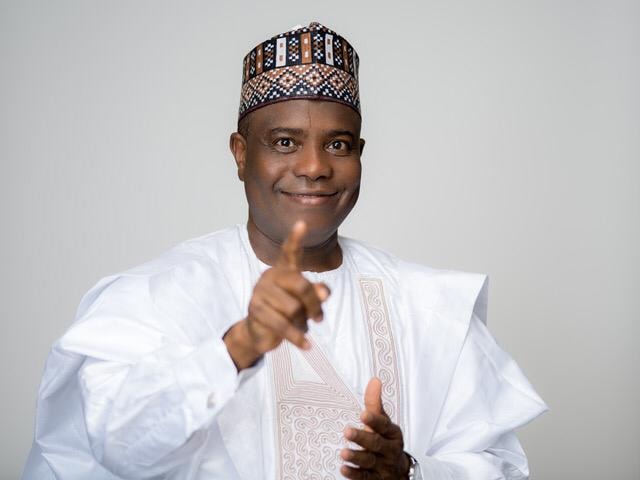
Abubakar Sani Bello
Mr Bello served two terms as governor of Niger State between 2015 and 2023. He won the Niger North Senate seat under the APC in the 2023 general election.
The former governor is the son of a former military governor of old Kano State, Sani Bello, a colonel.
He had defeated the incumbent senator for the district, Aliyu Abdullahi, in the APC primary. Mr Abdullahi who was serving his second term in the Senate, failed to win the ticket of the party for the third term. He came a distant second to Mr Bello in the primary of the party.

Ibrahim Danwkambo
Mr Danwkambo was a two-term governor of Gombe State from 2011 to 2019 under the platform of the PDP.
The former governor was elected senator for Gombe Central North District in 2023, defeating the incumbent, Seidu Akali, of the APC.
The 61-year-old politician had contested the senate election in 2019 after his tenure as governor but lost to Mr Akali.
He served as the accountant-general of the federation between April 2005 and January 2011, when he resigned his position to start his campaign for election as governor of the state. He had earlier served as the state’s accountant-general from 1999 to 2005.

Abdulaziz Yari
Mr Yari served two terms as governor of Zamfara State between 2011 under the platform of the now default All Nigeria Peoples Party (ANPP) and in 2019 under the platform of the APC, following the merger of the ANPP and several other opposition parties to form the now ruling APC in 2014.
The former governor won the Zamfara West seat in the 2023 general election under the APC.
After his tenure as governor in 2019, Mr Yari ran for the senate and won with a wide margin on the party’s platform. However, his election and those of other APC candidates in the 2019 general election in the state were nullified by the Supreme Court on the ground that they were not validly nominated through party primaries.
Thus, all the victories recorded by the APC in the 2019 general elections were ceded to the PDP which came second, based on the Supreme Court ruling.
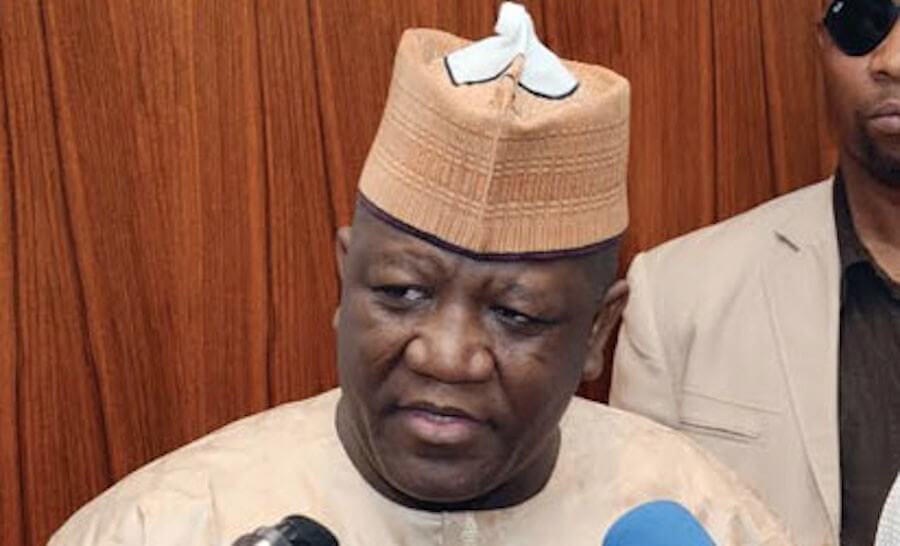
Mr Yari almost ditched the party at the height of the crisis rocking the APC in the state.
Political observers in the state believe his APC senate ticket for Zamfara West was part of the rapprochement deals from the former governor of the state, Bello Matawalle, to make him (Yari) remain in the party.
Mr Yari was defeated in the race for the presidency of the 10th Senate on Tuesday.
Gbenga Daniel
Mr Daniel was a two-term governor of Ogun State. He served between 2003 and 2011 on the platform of the PDP.
In the 2003 governorship election, he defeated the incumbent Olusegun Osoba of the now-defunct Alliance for Democracy.
The former governor won the Ogun East Senate seat in the 2023 election to reactivate his political career after a lull playing at the periphery, following his exit from office as governor in 2011.
Since the end of his tenure as governor, he had been in political limbo until February 2021 when he moved to the APC from the PDP.

Analysts say his securing the APC ticket suggested that the party’s power brokers still need his services. Mr Daniel is close to the incumbent governor of the state, Dapo Abiodun, who won a second term. Messrs Abiodun and Daniel come from the same district.
Aliyu Wammako
Mr Wammako, a former two-term governor of Sokoto State, is the undisputed leader of the APC in the state. He served as the governor of the state between 2007 and 2015.
In 2023, the former governor was re-elected senator for Sokoto North District, defeating his closest opponent and the then deputy governor of the state, Muhammad Dan Iya of the PDP.
He was first elected as a senator in 2015 and re-elected in 2019.

Orji Kalu
Mr Kalu, the Chief Whip in the 9th Senate, was reelected in 2023 from the Abia North District. Despite the hurdles of being in the opposition in Abia, the then-PDP state, the senator showed he knew how to win elections for himself.
A former governor of Abia State for two terms between May 1999 and May 2007, Mr Kalu left the PDP following a rift with then President Obasanjo, to form the defunct Progressive People’s Alliance (PPA) in 2007.
After leaving office as governor in 2007, he failed to win other public offices until he joined the APC in November 2016.
Among other former governors in the race for the Senate President’s seat, Mr Kalu has the longest-running corruption case. He had been charged, tried, jailed, and still faces the prospect of a fresh trial.
His case traces back to his days as governor. EFCC filed money laundering charges against him within a month of his stepping down on 29 May 2007 from an office that clothed him with immunity from prosecution.
In the charges filed against him in June 2007, EFCC accused him, along with his co-defendants, of diverting over N3.2 billion from Abia State coffers.
After years-long stalling of the case, the Supreme Court on 18 March 2016 cleared the legal encumbrances for his trial to begin.
The trial began afresh at the Federal High Court in Lagos. As the trial grew in intensity, Mr Kalu’s chances of a political comeback also dwindled. Mr Kalu made the deft move of joining the APC in November 2016.
His defection, well received within APC, drew criticism from the Nigerian public.
Mr Kalu, who backed the failed bid of the outgoing Senate President, Ahmad Lawan, to pick the APC’s presidential ticket last year, said it was his turn to lead the Senate. But he dropped out before the election on Tuesday which produced Mr Akpabio as the Senate President.
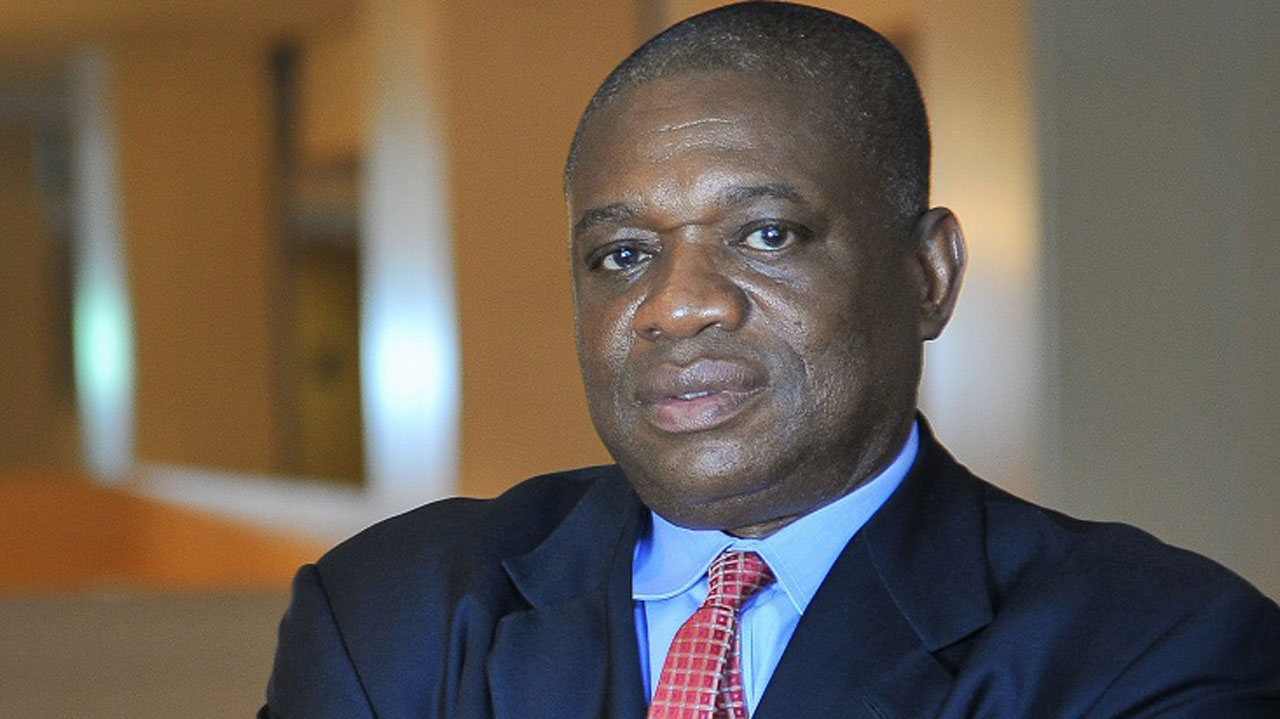
Ibrahim Gaidam
Mr Gaidam won the Yobe East District election in 2023 under the APC platform, for a second term.
He was first elected to the Senate to represent the district in 2019.
He served as governor of Yobe State from January 2009, following the death of Governor Mamman Ali in Florida of a liver problem. Abubakar Ali, brother of Mamman Ali, was named as the new deputy governor. Mr Gaidam completed the tenure for his joint ticket with the deceased governor in 2011.
He was elected, the same year, and served as governor for two terms between 2011 and 2019- and thus earned the spectacular credit of being the longest-serving governor of the state – 10 years – to date.

Seriake Dickson
Popularly called the ‘contriman governor’, Seriake Dickson returned to the senate in 2023 as a second-timer. This was after serving two terms as governor of Bayelsa State on the platform of the PDP between 2012 and 2020.
He was first elected to the Senate in an October 2020 by-election from the Bayelsa West District. The seat became vacant after the occupant was sworn in as the state’s deputy governor.
Before his election as the governor of the oil-rich state, he had served as a member of the House of Representatives in the sixth Green Chambers.
Ex-ministers who became senators in the 10th Assembly
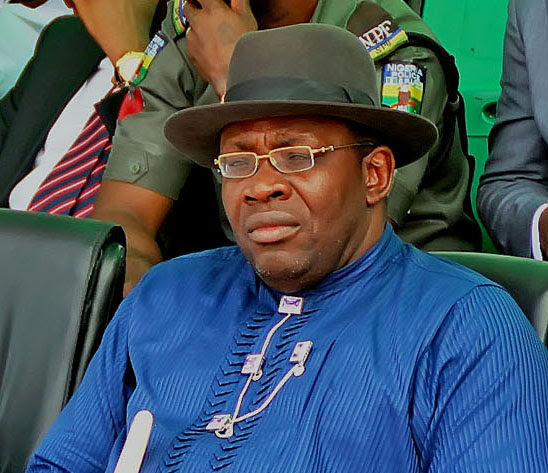
Godswill Akpabio
Mr Akpabio, a lawyer, served as a two-term Governor of Akwa-Ibom State between 2007 and 2015 under the platform of the PDP.
He would later win the Senate seat of Akwa-Ibom North-West District under the party’s platform in 2015 when he left office as the governor of the oil-rich state.
In August 2018, he defected to the ruling APC, which had the majority in the House, where he was serving as minority leader.
The senator was later appointed Minister of Niger Delta Affairs by former President Muhammadu Buhari.
The former governor served as minister between August 2019 and June 2022, when he resigned from the position to contest in the APC presidential primaries.
He would step down on the night of the presidential primary for the eventual winner and now President, Mr Tinubu.
Mr Akpabio, subsequently re-contested and again won the Senate seat for the Akwa-Ibom North-West District under the APC.
In May, the then President-elect, Mr Tinubu, proposed Mr Akpabio as senate president which was ratified by the National Working Committee (NWC) of the APC, days later, amidst stiff opposition from some senators and regions demanding the position. He was elected to the position on Tuesday.
Mr Akpabio was under investigation by the Economic and Financial Crimes Commission (EFCC) on accusations that he diverted over N100 billion during his time as governor of Akwa-Ibom State. He is yet to be charged, however.
The former minister was summoned by members of the House of Representatives, in May 2020, over the misappropriation of over N40 billion.

Ikra Aliyu
Mr Aljyu served as minister of state for information and communication during the administration of former President Goodluck Jonathan, between 2011 and 2015.
He was a member of the PDP, but switched to the ruling APC, following PDP’s defeat in the 2015 presidential election.
In 2022, he returned to the PDP, under which he won the Zamfara Central District election in 2023, defeating his APC counterpart, Garba Marafa, who represented the district between 2011 and 2019.
In December 2022, the former minister was arrested by police in the state and arraigned before the Zamfara State Upper Sharia Court 11 for the alleged destruction of APC campaign billboards and other properties.
He was remanded in prison for about two weeks until he was granted bail.

Abdulhamid Madori
Mr Madori was elected senator for Jigawa North-east District under the APC platform in 2023, defeating former deputy governor and senator, Ubali Shitu of the PDP.
He was appointed as minister of state for power and steel under the administration of former President, Olusegun Obasanjo in 2005. He later served as the country’s ambassador to Turkey under the administration of Mr Jonathan between 2011 and 2015.
The former minister was a political godson to the former governor of the state, Sule Lamido. But he fell out of favour with Mr Lamido following his (Madori) failure to clinch the PDP governorship ticket ahead of the 2015 election in the state.
His defection in 2015 from the PDP to the opposition APC at the time angered Mr Lamido, whom he accused of imposing the party’s candidate, Ibrahim Ringim, on them.

Abba Moro
Mr Moro was reelected senator for Benue South District in 2023 under the platform of the PDP. He was first elected into the Red Chamber in 2019, replacing former Senate President, David Mark.
The new senator had served as minister of interior between 2011 and 2015 under Mr Jonathan.
Mr Moro was the PDP candidate for the 2007 governorship in Benue State but lost to the opposition.
In 2014, during his time as minister, he supervised the infamous recruitment exercise that led to the death of at least 15 young Nigerians. The poorly planned exercise by the Nigeria Immigration Service (NIS) caused the deaths of applicants across Nigeria. The applicants died in stampedes caused by the poor organisation of the recruitment tests in Abuja and other cities.
Apart from the deaths of the applicants, Mr Moro and others were also accused of defrauding the applicants of hundreds of millions of naira and are being prosecuted by the anti-graft agency, EFCC.
The then NIS chief, David Paradang, not only accused Mr Moro of supervising the recruitment, he was a prosecution witness and told the court how Mr Moro allegedly violated a presidential directive after the recruitment.
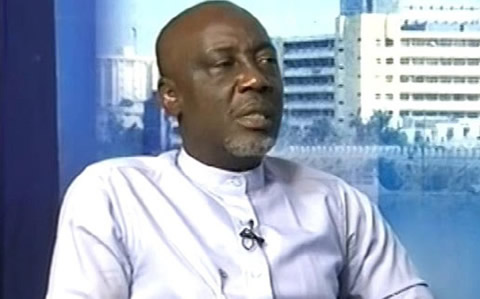
Adamu Aliero
Mr Aliero was the Kebbi State Governor between 1999 and 2007 under the PDP platform. He recently had issues with the current governor, Atiku Bagudu, which precipitated his loss in the APC primary for Kebbi Central District. But that did not cripple his ambition as he defected to the PDP and subsequently won in the general election.
Mr Aliero was appointed minister of the Federal Capital Territory by former President Umaru Musa Yar’Adua in December 2008. He left office as minister in March 2010 when the then-acting President Jonathan dissolved his cabinet.
Mr Aliero’s senate election victory in 2023 meant he is returning to the Red Chamber for the fourth time, making him one of the longest-serving in the state.
Danjuma Goje
Mr Goje finished his tenure as the governor of Gombe State in 2011- after serving for two consecutive terms from 2003, under the PDP platform.
He was first elected senator for Gombe Central district on the PDP ticket in 2011. In 2014, he dumped the PDP for the APC, under which he was reelected senator for the district in 2015, 2019 and 2023.

He had earlier served as minister of state for power and steel from 1999 to 2001 under former President Obasanjo.
In May this year, he was controversially expelled from the APC by the state chapter of the party on allegations of anti-party activities. His expulsion was, however, rescinded by the party’s NWC a few days later.
PREMIUM TIMES






